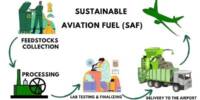Breast cancer is frequently misunderstood as a “female” disease, however, this is not the case. Moobs, a new UK-based group, strives to fight these stereotypes by promoting awareness of male breast cancer and providing support to those diagnosed.
Anyone can be affected by breast cancer.
Males may not have “boobs” in the traditional sense, but they do have breast tissue, which means they can get breast cancer. It’s significantly rarer, accounting for around 0.5 to 1 percent of all breast cancer cases worldwide, but that doesn’t mean it doesn’t happen or that it’s any less serious when it does.
Around 2,800 males in the United States are expected to be diagnosed with breast cancer by 2023, with 530 of them expected to die.

Moobs was founded by James Richards, who was diagnosed with breast cancer in February of this year, with three main goals in mind: to educate people diagnosed with male breast cancer on the disease, to offer them support, and to change the way we perceive breast cancer in general.
“As a man, I was always aware of the risks of prostate and testicular cancer, but I had no idea men could get breast cancer – you just don’t hear about it,” Richards told The Independent.
“In the days following my diagnosis, I was surprised by the lack of tailored support and information readily available around the disease, and much of my treatment plan was based on what was offered to women.”
“There are differences, but with so few cases and a lack of funding for male breast cancer, we are in danger of isolating those that need support the most.”
Mission possible: The charity is already fulfilling a portion of its objective by hosting a monthly support meeting through Zoom to bring those diagnosed with the disease together and alleviate the isolation that often accompanies it.
During its launch, it also solicited the assistance of UK television’s Dr Amir Khan and Dr Zoe Williams, exposing its search to a much larger audience and providing useful guidance.
In an interview with the PA news agency, Khan stated, “I always say to women, be ‘breast aware’ – so that’s knowing what’s normal for you, and then being aware of any changes and getting them checked, and it’s exactly the same for men.”
Symptoms to watch for include:
a hard, painless, and immobile lump within the breast inversion of the nipple or upward turning nipple discharge, including blood chronic soreness or rash around the nipple presence of little swollen bumps in the armpit (lymph nodes)
Khan stated that the majority of breast tissue in males is concentrated around the nipple, so individuals should pay special attention to that area, but they should also inspect the entire chest area, up to the collarbone, and beneath the armpits.
Being breast-conscious can also imply being aware of any family history of breast cancer, especially if it involves mutant BRCA genes or medical conditions or therapies that elevate estrogen levels (a risk factor for breast cancer). Male breast cancer, like many malignancies, primarily affects older people, but it can strike younger people as well.
Khan suggests that you inspect your pecs once a month. “Just like you should examine your testicles for lumps, you should also check your breasts. Once a month, do both – balls and breasts – in the shower.”
If you do find something, you should see your doctor for reassurance and/or a referral.
“It’s always better to be safe than sorry, and the longer you leave it [if it is cancer], sadly, the worse the outcome is likely to be,” Khan said.
“So as soon as you pick anything up, go and see someone.”
This page is not intended to be a replacement for professional medical advice, diagnosis, or treatment. When you have questions about medical conditions, always seek the opinion of certified health specialists.
















